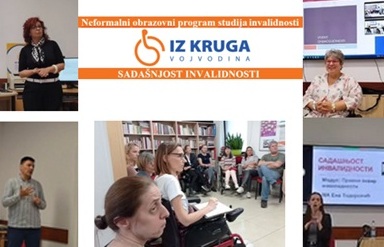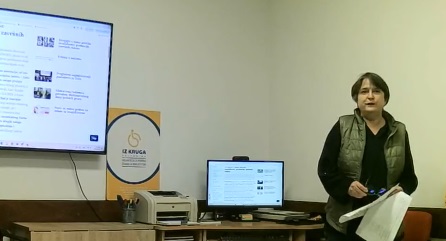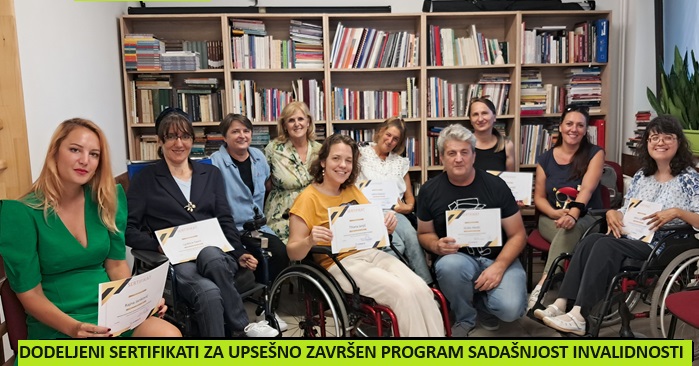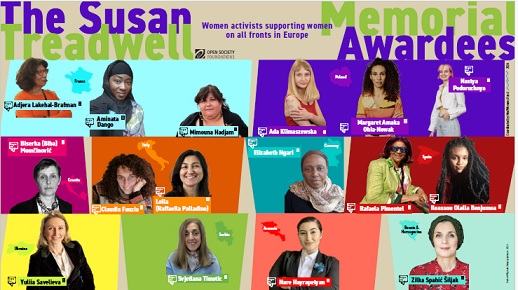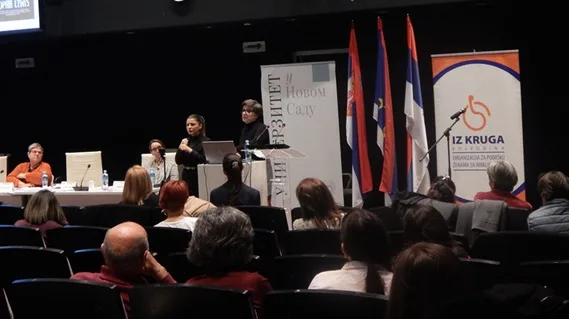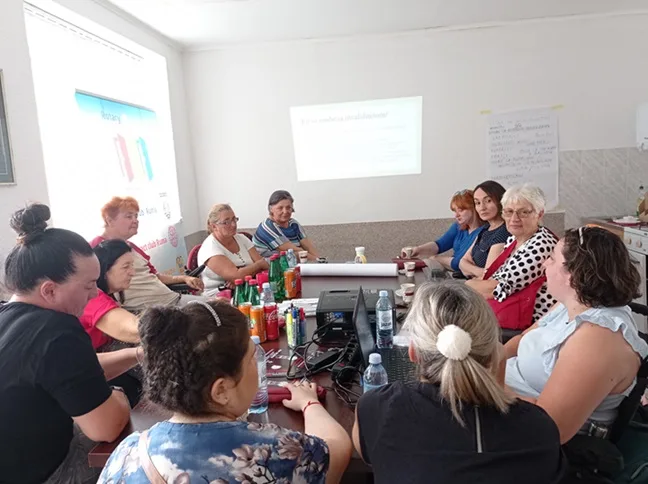In the rooms of the IZ KRUGA VOJVODINA, Ivana Zelic and Miladinka Mijatovic held the training for women with sensory disabilities that use sign language aiming to enhance their capacities and techniques for conducting training and empowering other women with sensory disabilities for advocacy for sexual and reproductive rights. The training participants were members of the Association of the Deaf and Hard of Hearing of Novi Sad. Marija Gobnai a sign language interpreter from the Association of Sign Language Interpreters and Translators Ruke govore (Hands Speak) translated into sign language.
In the first part of the training the trainers introduced the participants to the work of IZ KRUGA VOJVODINA, spoke about types, models and disability terminology, the sexual and reproductive health and rights of women with disabilities and obstacles they face in exercising their rights. The second part was dedicated to public advocacy, lobbying for one’s rights, and creating specific public advocacy actions.
Trainers presented to the participants the vital steps that lead to changes in society and examples of activities women with disabilities, members of the Initiative of Women with Disabilities for Improvement of Sexual and Reproductive Rights in Serbia realized in their municipalities aiming to improve sexual and reproductive health and rights.
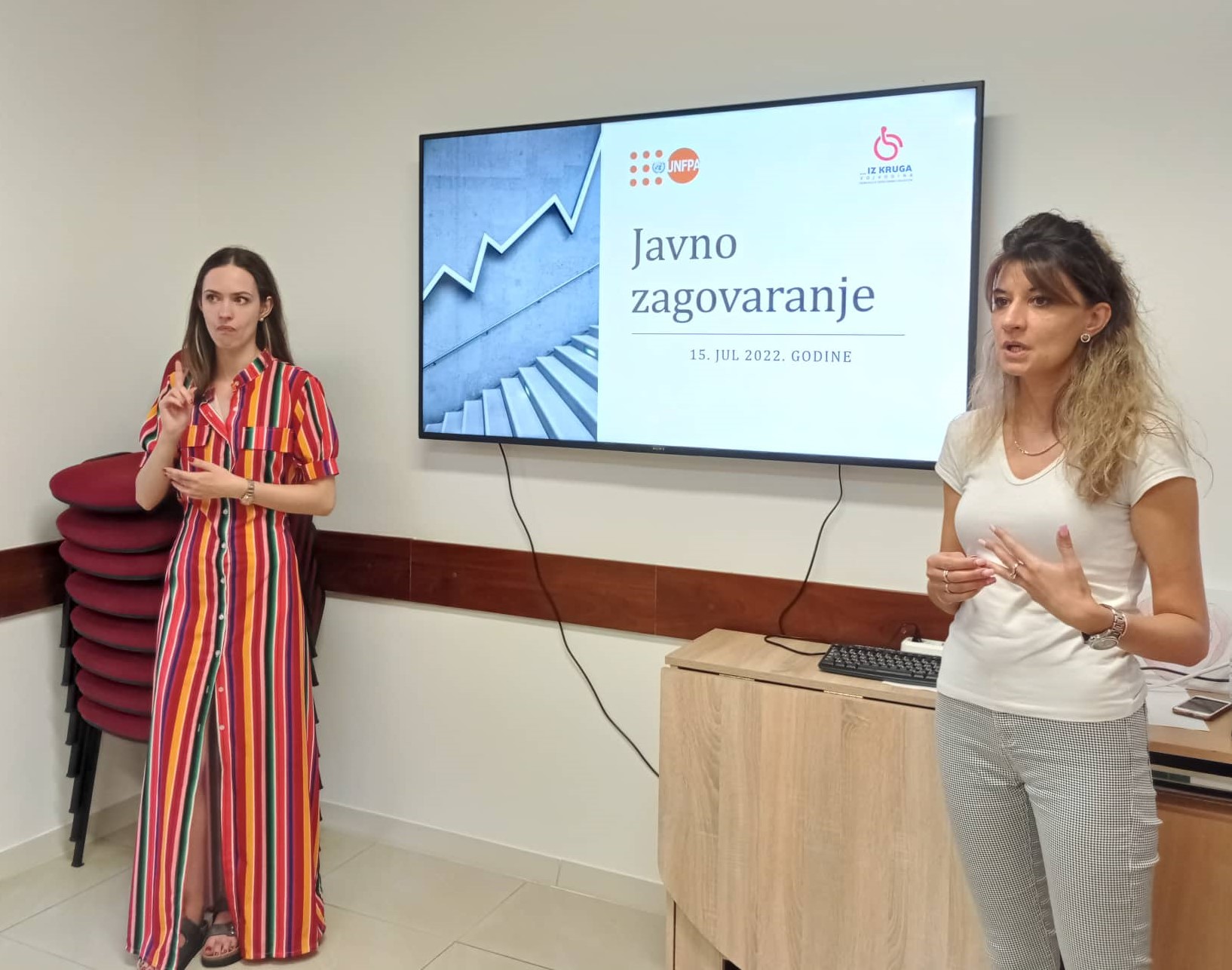
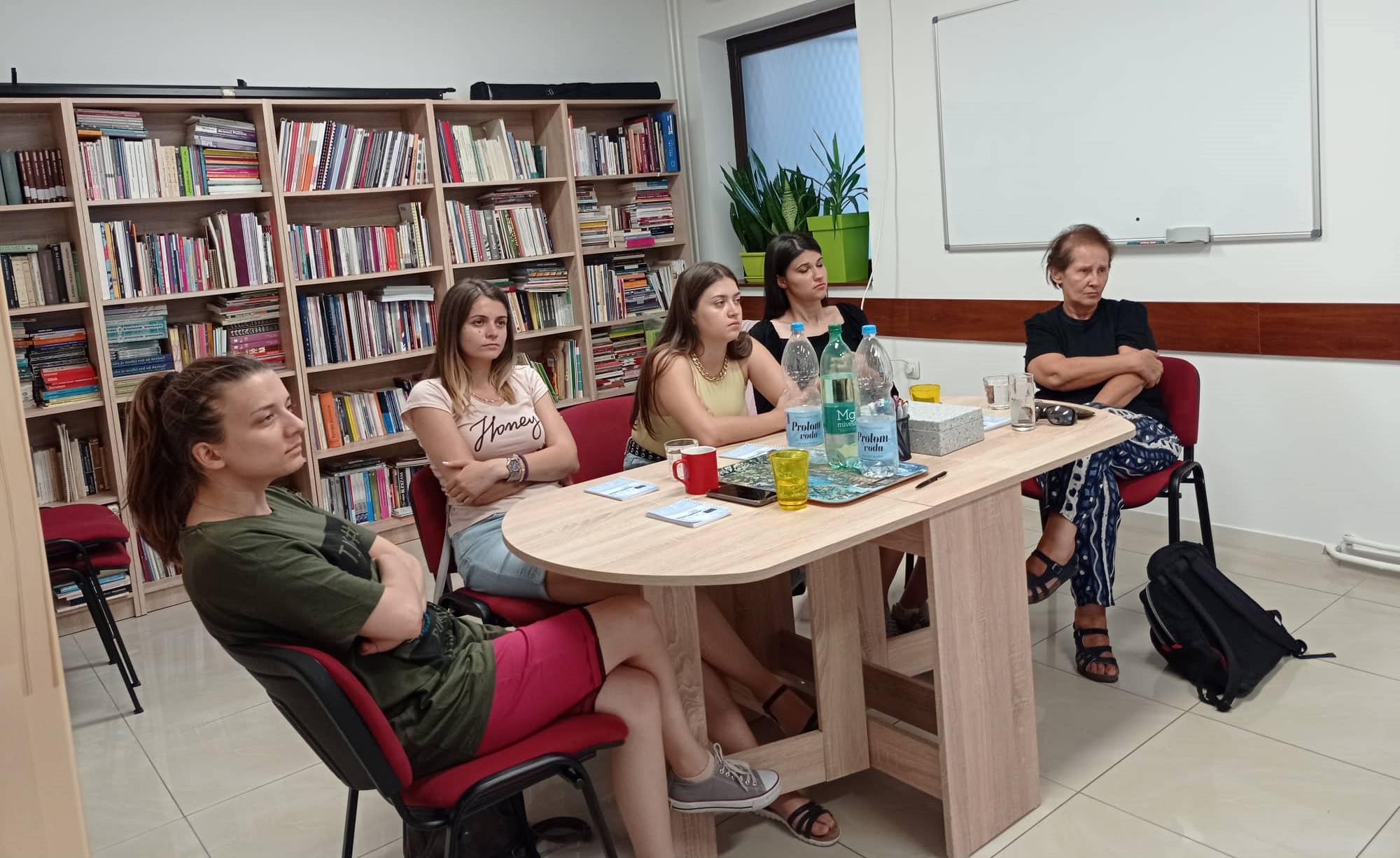
The participants think that women with disabilities are exposed to pressure from their immediate surroundings and health workers who are emitting messages that they shouldn’t give birth because the child might not be healthy, that they couldn’t give it appropriate nursing or be good enough mothers or wives.
– My husband is deaf as I am. When I was pregnant for the first time, my mother-in-law tried to persuade me to have an abortion. She believed that I wouldn’t be able to take care of my child and that it might be deaf too. With the support of my husband I managed to win and have a baby. I have two grown-up children now, both of whom are hearing.
Women that cannot hear face numerous obstacles during gynecological check-ups:
– The check-up can only be scheduled by phone, there is no possibility of correspondence by e-mail or SMS. If a deaf woman tries to schedule a check-up in person, they refer her back to the Call center.
– Deaf women use simple language, whilst doctors use professional terms.
– Some doctors are unkind, they don’t put much effort into explaining the examination procedure.
– When I complain that I didn’t understand something, the doctor writes a short explanation on a piece of paper, abbreviated and I cannot be sure if I understood him correctly.
The experiences of sign language interpreters in accompanying a deaf woman to a check-up are alike.
– Health workers often do not allow us to enter the doctor’s office with a woman who cannot hear or have high expectations and most often think we are a family member. They ask about partner relationships of a deaf woman, if she is taking the administered therapy regularly and similar. I clearly emphasize that my role is to mediate the communication and not to remember its particulars – said Marija Gobnai.
The participants will after successful completion of the training hold basic training about public advocacy in sign language. They will train women with sensory disabilities from chosen municipalities to conduct field research on a small scale, map obstacles and advocate for their sexual and reproductive rights locally.
The training took place on July 15, 2022. within the project Promotion of sexual and reproductive health and rights of women with disabilities by increasing their capacities for advocacy and sensitization of health workers. The project is accomplished in cooperation with the United Nations Population Fund (UNFPA).

